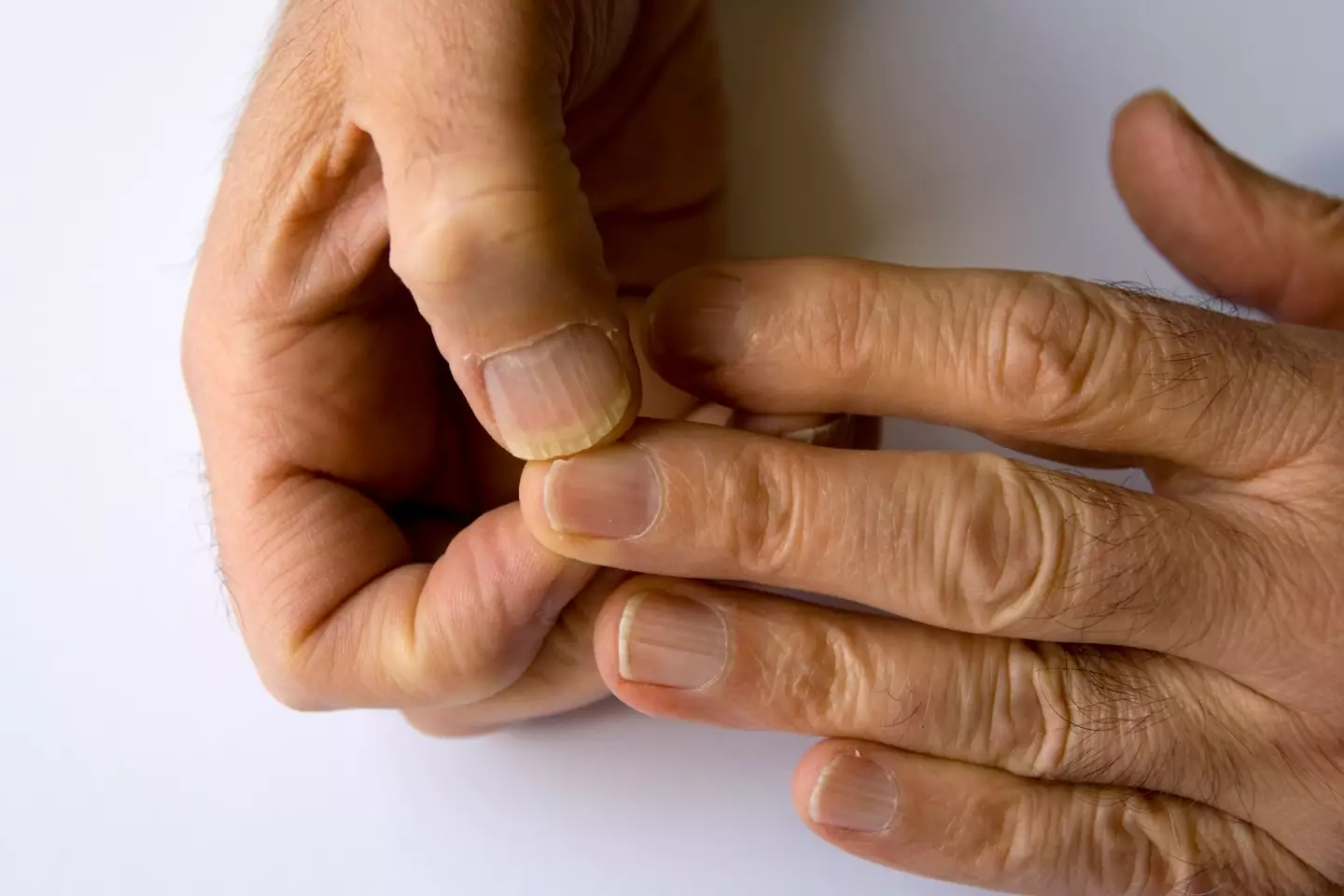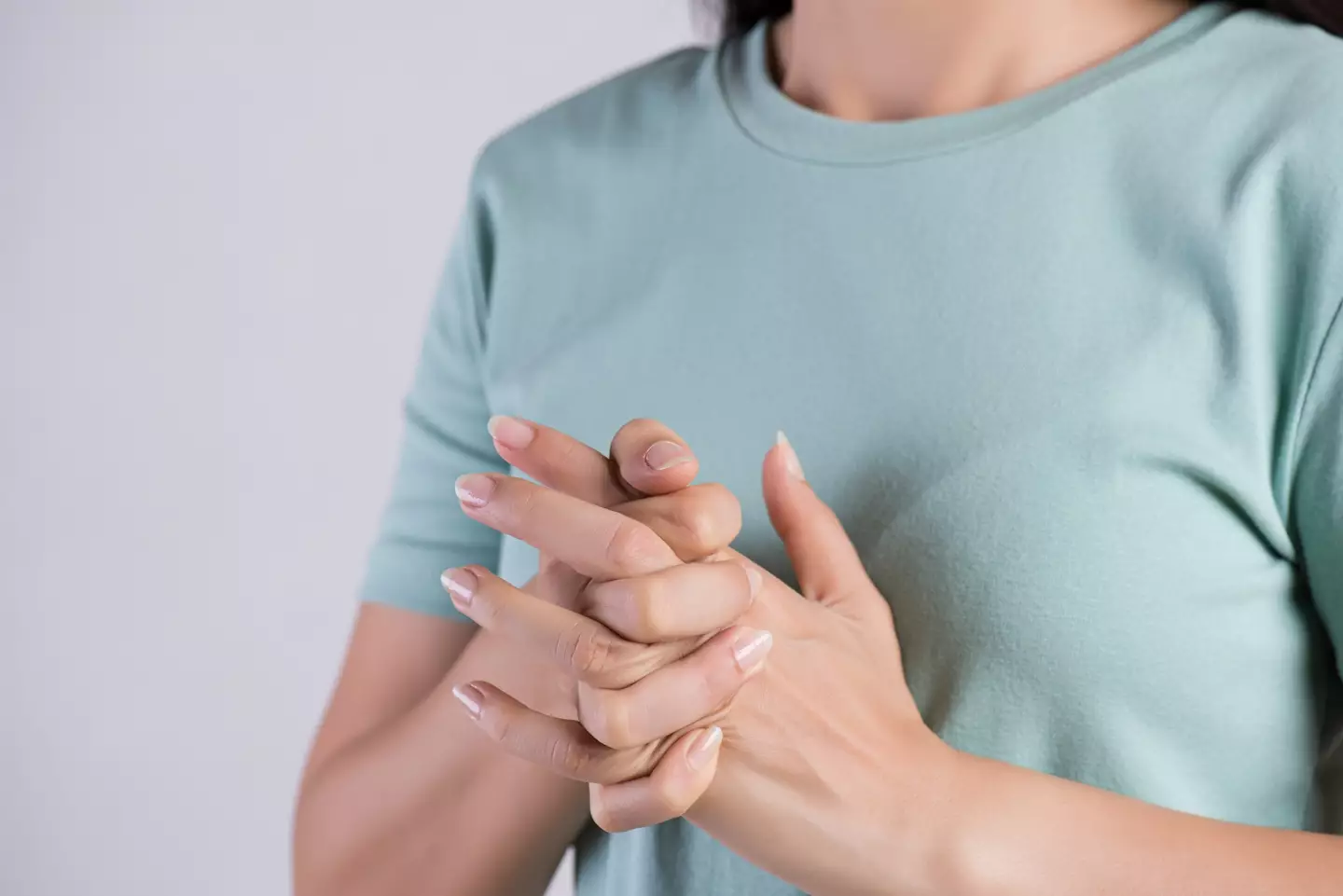
Maintaining a balanced diet is hugely important for your general health and wellbeing.
California-based gastroenterologist Saurabh Sethi posted a clip to social media explaining what certain signs might mean.
When you're not getting the things that your body needs, it does have clever ways of telling you that you should make some changes to your diet.
Some might be subtle, but they are nonetheless a sign that you might be lacking something that your body requires.
Advert
This is far more than just having enough energy to keep you going - you also need to have proteins, vitamins, and fibre to help keep things ticking over.
And if you don't get enough of certain nutrients then you may start to notice some things.
So what are the signs, and what do they mean? Let's get into it.
Brittle Nails

Dr Seth explained that if your nails are particularly brittle, then 'this indicates a deficiency of protein and iron in the diet'.
Nails are made up of keratin - the same substance as rhinoceros horns, bird feathers, and hooves.
Keratin is a protein, and getting enough protein is crucial, with Harvard Medical School recommending a person weighing 68kg consume at least 54g of protein daily.
If you wear nail polish then the remover may make your nails more susceptible to becoming brittle over time, while cold or dry weather and aging can also have an impact.
Protein rich foods are best to counter this, such as beans, spinach, eggs, fish, and red meat.
Twitching eyelids
According to Dr Seth, this might indicate magnesium deficiency, explaining: “Twitching in the eyelids or the limbs indicates magnesium deficiency, which is critical for transmitting nerve impulses.”
Other causes for this to take account of might include stress, tiredness, caffeine consumption, or spending long periods of time staring at screens.
But if it is magnesium, in some cases this can be called Myokymia, when the eye twitches or closes involuntarily.
You can get magnesium supplements, but speak to a doctor first.
Joints clicking

Dr Sethi said that this may be 'a warning sign of vitamin D3 or calcium deficiency.'
Getting plenty of calcium and vitamin D can be very good for maintaining healthy bones.
For calcium you can eat more leafy greens such as broccoli or kale, or of course dairy products including, milk, cheese, and yoghurt.
Prematurely greying hair
Going grey is something which happens naturally with age, but if you're going grey prematurely this may be a sign of a couple of things.
Premature means before the age of 20 for white people, and before the age of 30 for black people.
Dr Sethi said: “This could indicate a deficiency of vitamin B12, which is crucial for [red blood cell] production and oxygen transport at the hair follicles,
"This could also be a sign of copper deficiency, which is responsible for melanin production, imparting colour to your hair.”
Bruising easily
While people can bruise more as we get older due to the skin thinning, as well as genetics, or a medical condition, this can be from a deficiency.
Dr Sethi explained: "This could mean that you’re running short of vitamin C, which is responsible for collagen formation.
He added that it could also 'mean a deficiency of vitamin K1, which helps in blood clotting.'
Topics: Health, Diet, News, Social Media
